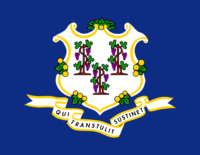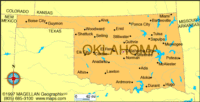In Part 1, we examined the current status of adult use cannabis in Minnesota, paying particular attention to the licensing framework, taxation and social equity considerations. In this article, we’ll cover some important need-to-know info if you’re considering opening an adult use business in the “Land of 10,000 Lakes.”
Starting a Cannabis Business in Minnesota: Important Considerations
As the state does not expect to begin issuing licenses before the first quarter of 2025, now is the time to plan a licensing campaign. With a population of 5,714,000, 64% of which live in the Twin Cities of Minneapolis-Saint Paul, Minnesota is close in population to Colorado, with 5,774,000 residents. Colorado currently has around $1.8 billion in yearly retail cannabis sales. This may suggest a similar possible level of sales for Minnesota once its retail cannabis market matures.
 In a recent op-ed piece for Marijuana Moment, the New York cannabis consulting firm of Bridge West Consulting suggested three reasons, in addition to low cannabis excise taxes and reasonable license fees, why entrepreneurs should consider investing in a retail cannabis business in Minnesota:
In a recent op-ed piece for Marijuana Moment, the New York cannabis consulting firm of Bridge West Consulting suggested three reasons, in addition to low cannabis excise taxes and reasonable license fees, why entrepreneurs should consider investing in a retail cannabis business in Minnesota:
- Minnesota legislation prohibits localities from banning cannabis businesses. This avoids serious problems that have plagued cannabis businesses in other states including California and Montana in which access for cannabis companies has been denied and, in Montana’s case, even reversed. (Minnesota’s new legislation does allow local governments to limit the number of cannabis retailers to one for every 12,500 residents, however.)
- Minnesota has allocated funds to assist social equity cannabis businesses, including $6 million to the CanStartup which will fund non-profits to make loans to budding cannabis businesses.
- Bridge West makes the interesting observation that Minnesota is bordered by four states—Wisconsin, Iowa, South Dakota and North Dakota—none of which have legalized adult use cannabis. Moreover, an estimated 1.9 million people live outside of Minnesota within a 50-mile radius. That means that not only will Minnesotans not have to compete with out-of-state cannabis dispensaries but will benefit from the purchases of out-of-state residents that live within a comfortable distance.
How a License Application is Scored
HF100 gives some guidance as to how the Office of Cannabis Management (OCM) will score license applications, awarding points for the following 9 categories: social equity status, veteran status, security and record keeping, employee training plan, business plan and financial situation, diversity plan, labor and employment practices, knowledge and experience and environmental plan.
The OCM may award additional points if the applicant would expand service to an underrepresented market. Points may also be awarded to those applicants who can demonstrate a negative impact from cannabis prohibition such as arrest or imprisonment of the applicant or their immediate family. This is different from social equity status and the law says points may be awarded to the applicants “in the same manner as points are awarded to social equity applicants.”
Emphasis on Market Stability; Prohibition of Vertical Integration
Minnesota is taking measures to ensure “market stability,” which it doesn’t specifically define, but which it says involves:
- Ensuring an adequate supply of cannabis, but not a glut.
- Eliminating the illicit cannabis market.
- Promoting a craft cannabis industry.
- Prioritizing growth and recovery in communities that have experienced a disproportionate, negative impact from cannabis prohibition.
HF100 states, “The office shall issue the necessary number of licenses in order to ensure the sufficient supply of cannabis flower and cannabinoid products to meet demand, provide market stability, and limit the sale of unregulated cannabis flower and cannabinoid products.”
 Continuing its emphasis on “smaller is better,” HF100 says, “Unless the office determines that the issuance of bulk cultivator licenses is necessary to ensure a sufficient supply of cannabis flower and cannabinoid products, the office shall not issue a bulk cultivator license before July 1, 2028.”
Continuing its emphasis on “smaller is better,” HF100 says, “Unless the office determines that the issuance of bulk cultivator licenses is necessary to ensure a sufficient supply of cannabis flower and cannabinoid products, the office shall not issue a bulk cultivator license before July 1, 2028.”
Vertical integration is also prohibited. “The office shall not issue licenses to a single applicant that would result in the applicant being vertically integrated.” HF100 goes on to state that microbusinesses are exempted, and that if the OCM determines that vertical integration is necessary to ensure a sufficient supply of cannabis and cannabis products during the first year of such products being sold to customers, it may authorize one or more applicants to be vertically integrated. However, such a group of licenses are very temporary and will expire at the end of that first year period.
An entity holding a cannabis retailer license may also hold a delivery license, a medical retailer license and an event organizer license. But no retailer may hold any other license. Also, no entity may own or operate more than one retail business in one city or county.
Interestingly, Minnesota is also allowing cities or counties to own and operate a municipal cannabis store, possibly similar to the way Utah has government liquor stores which compete with private bars, breweries, wineries and distilleries.
In Summary
Minnesota is just beginning to define and establish its adult use cannabis market. Like other states before it, it is attempting to promote social equity aims at the same time as it’s working to avoid the serious problems of a competitive illegal market and an over-or-under supply of cannabis to its citizens.
With low license fees and excise taxes and a good-sized population, 420CPA believes cannabis entrepreneurs should seriously consider Minnesota for possible investment. The first cannabis retail businesses are not expected to open for another 18 months, so now is the time for businesspeople to lay the groundwork for their applications and future locations.



























